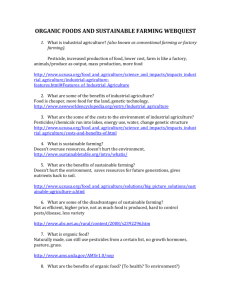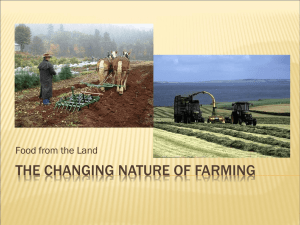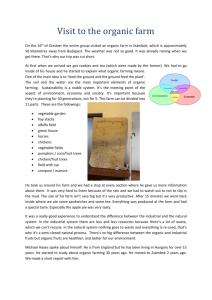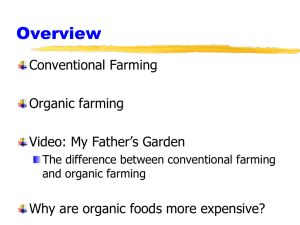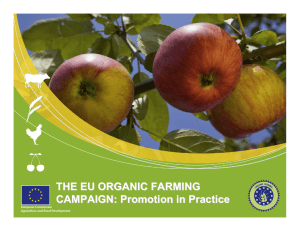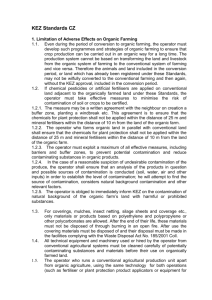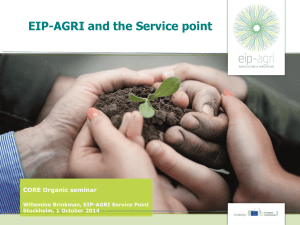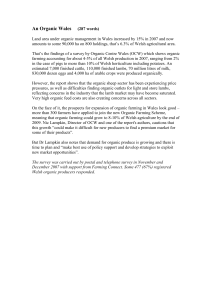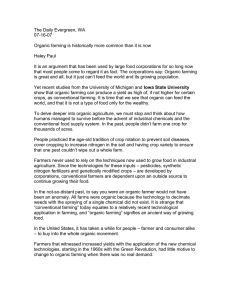An organic solution to world hunger
advertisement
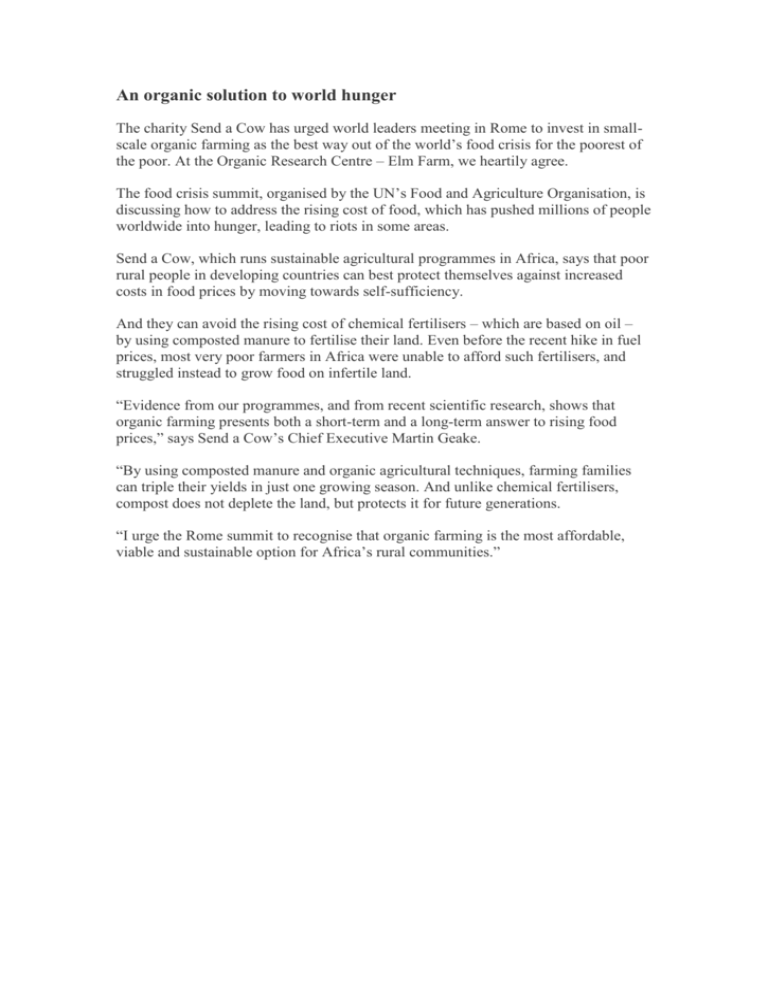
An organic solution to world hunger The charity Send a Cow has urged world leaders meeting in Rome to invest in smallscale organic farming as the best way out of the world’s food crisis for the poorest of the poor. At the Organic Research Centre – Elm Farm, we heartily agree. The food crisis summit, organised by the UN’s Food and Agriculture Organisation, is discussing how to address the rising cost of food, which has pushed millions of people worldwide into hunger, leading to riots in some areas. Send a Cow, which runs sustainable agricultural programmes in Africa, says that poor rural people in developing countries can best protect themselves against increased costs in food prices by moving towards self-sufficiency. And they can avoid the rising cost of chemical fertilisers – which are based on oil – by using composted manure to fertilise their land. Even before the recent hike in fuel prices, most very poor farmers in Africa were unable to afford such fertilisers, and struggled instead to grow food on infertile land. “Evidence from our programmes, and from recent scientific research, shows that organic farming presents both a short-term and a long-term answer to rising food prices,” says Send a Cow’s Chief Executive Martin Geake. “By using composted manure and organic agricultural techniques, farming families can triple their yields in just one growing season. And unlike chemical fertilisers, compost does not deplete the land, but protects it for future generations. “I urge the Rome summit to recognise that organic farming is the most affordable, viable and sustainable option for Africa’s rural communities.”
